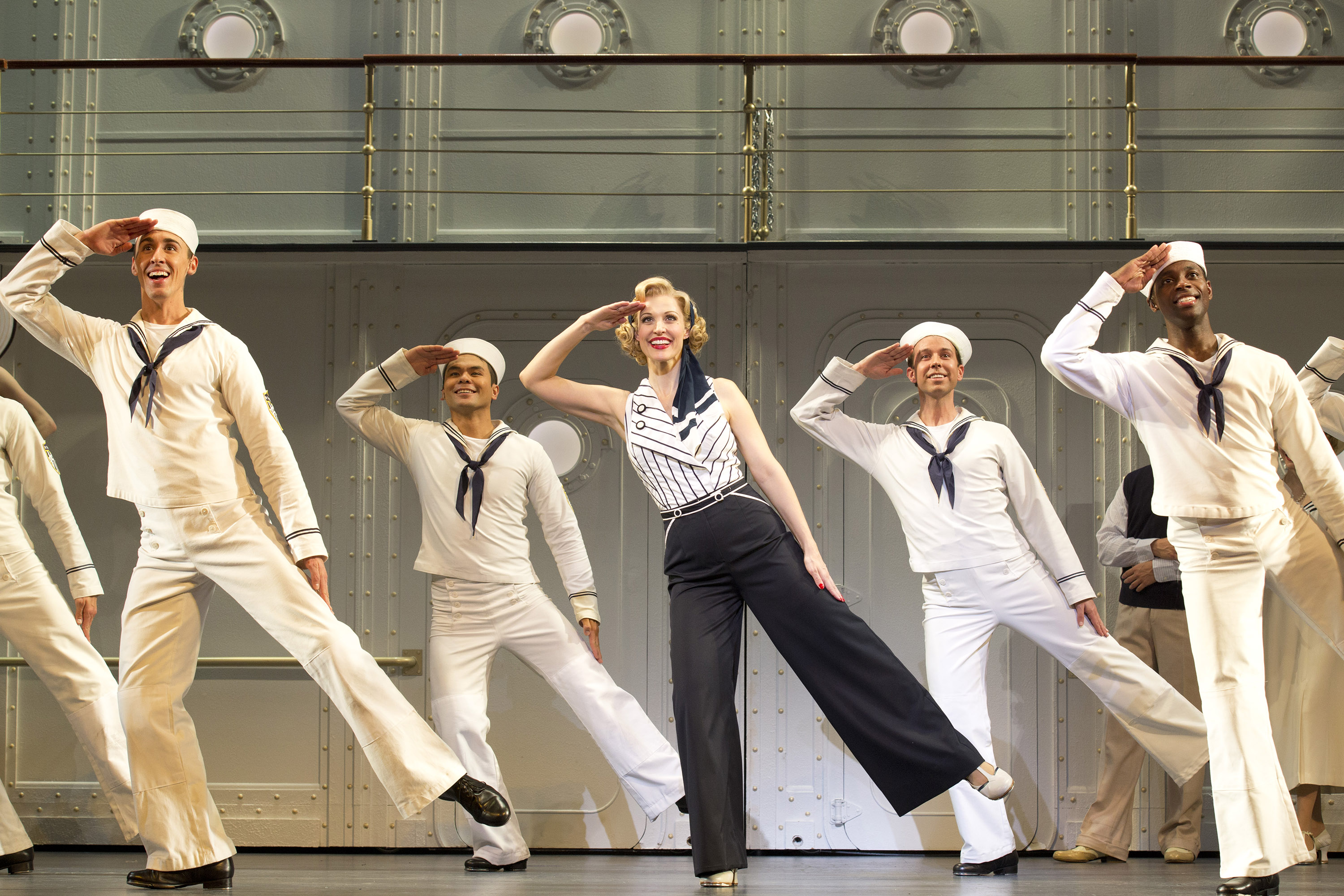Anything Goes
5th Avenue Theatre, 1308 Fifth Ave., 625-1900, 5thavenue.org. $29 and up. Runs Tues.–Sun. Ends Nov. 3.
Nothing could kill this Cole Porter classic like trying too hard; and, well, you know how touring musical companies can be: frenetic, plastic, mechanical. But from the start, practically the first lines, of this Roundabout Theatre Company production, it was a relief to see that the cast has the art-deco-era insouciance down pat. For instance, Scene One: Rachel York plays sassy lounge chanteuse Reno Sweeney and Josh Franklin plays Billy Crocker, an upwardly striving Wall Street newbie. They have a sexual history (no big whoop); she invites him to tag along on a transatlantic voyage (sure, why not?); and she sings “I Get a Kick Out of You” (pour me another drink, wouldja?).
If you can bring material like this true adult sophistication, and not just make it a sort of self-consciously mannerist period exercise, you have a winner. They can, and they do. York, in particular, is magnificent, owning the stage and making it look easy. (In Porterland, visible effort just leaves you less energy for the important things, like stowing away on luxury liners, knocking back cocktails, and looking good in white tie.) You know whose voice York’s reminds me of? Ella Fitzgerald’s. What they share is a lightly smoky bottom, like a peaty Scotch, that gains a bit of a ring as it opens up—not an edge, just a glint that delivers Porter’s word-drunk lyrics in high-def.
Also aboard: the ingenue Billy’s pursuing (Alex Finke) and the man she’s engaged to (Joey Sorge, as the sort of hapless British toff Terry-Thomas made a career of playing), and a two-bit gangster (Fred Applegate) and his sidekick/moll (Joyce Chittick). What they all want, and what they all end up with, forms the web of subplots that’s really just a scaffold for the songs, among which (“You’re the Top,” “It’s De-lovely”) are some of the high points of the Great American Songbook. (On the other hand, though practically every musical’s score has its gems and duds, the gap here is oceanic between Porter’s hits and his weirdly stodgy choruses, which sound like he was straining, but not quite managing, to forget all the Gilbert and Sullivan he’d ever heard.) Like the performances themselves, Kathleen Marshall’s direction and choreography is smart but never strenuous; her Act 1 tap-dance finale, to the title song, is everything you could possibly want a production number to be.
gborchert@seattleweekly.com







